Azalea dried up: why did it happen and how to revive it?
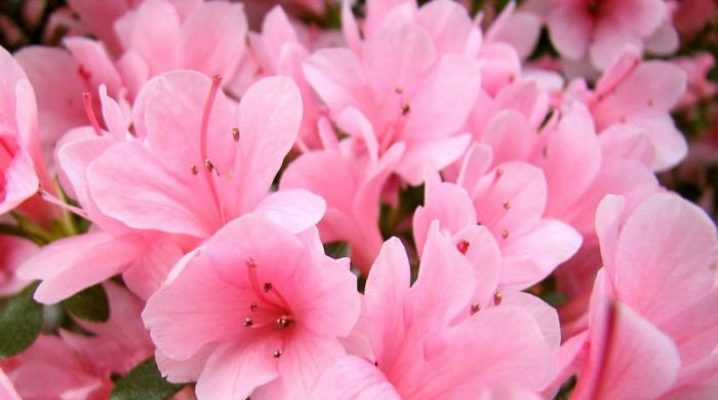
Azalea is considered one of the most beautiful indoor plants. However, it is not so easy to grow, because it is demanding to care for and reacts to literally everything. Often, after abundant flowering, it drops leaves, or even dries up altogether. Let's find out why this is happening. What should be done in such a situation?
Flower features
Few people thought that azalea does not like heat: it needs coolness. The plant is considered moderately picky, despite the fact that caring for it is not much more difficult than for other indoor flowers. The optimum temperature for proper development and growth is considered to be a temperature regime of +12 +18 degrees. During flowering, azalea feels comfortable at a temperature of +15 +16 degrees. The flower should not be placed in the sun: it cannot withstand direct sunlight. However, the plant also cannot survive in a dark room: often it is the shade that causes diseases.
You cannot buy a flower in the winter, exposing it to stress during transportation: not one or two layers of kraft paper will save the plant from the cold.
Few thought that after buying an azalea in a store, it cannot be left to grow in a tiny pot for a long time. After the flowering period is over, it is necessary to transplant the flower using the transshipment method. ANDit is the lack of proper attention to the size of the pot and the composition of the soil can be the root cause of drying out... The plant cannot withstand the abundance of calcium in the soil.
Main reasons
Azalea dries up in the absence of conditions necessary for its development. The reasons may be several, for example:
- wrong choice of temperature, its failures and drops;
- improperly selected substrate, which the plant does not like;
- insufficient soil nutrition and lack of timely feeding;
- damage to the flower by various pests;
- lack of land due to the growth of roots;
- irrigation irregularities, its irregularity;
- diseases of the root system;
- direct sunlight on the flower;
- insufficient room lightingwhere the flower is located.
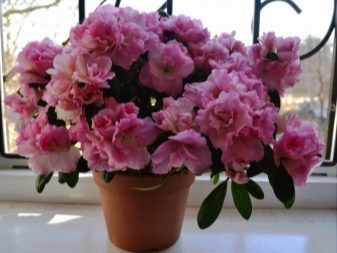
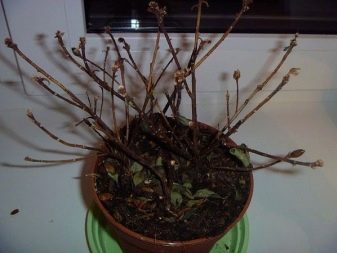
What to do?
If the plant has thrown off its leaves and began to dry out, you should carefully consider the possible reasons. This will allow you to understand which of them served as stress. It is important to examine a dying plant: if there are living buds on its shoots, this gives every chance of resuscitation of the flower.
However, if no living buds are noticed during visual inspection, then the plant can no longer be helped, it died.
If the problem is in the ground
Azalea, belonging to the Rhododendra family, needs an acidic substrate. If you notice that the plant has begun to shed its leaves and dry out, there is still a chance to revive it with the help of regular watering with a weak citric acid solution, using 2 g of acid per liter of water. If attention was not paid to the plant at one time, and the azalea practically dried up, it is necessary to save it by watering a solution of boric acid at the rate of 3 drops per liter of water... You can do the transshipment of a flower by choosing a substrate for it with peat and coniferous soil.
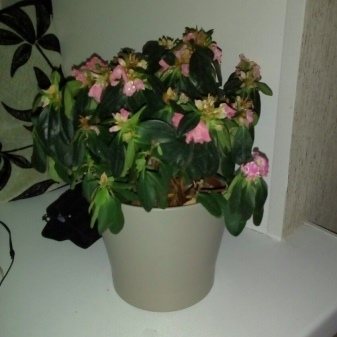
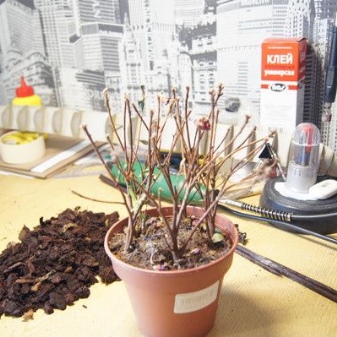
With a lack of watering
If it was found that insufficient watering was the cause of drying, the root system was damaged, it means that the plant could not receive the nutrients and moisture necessary for the formation of new shoots. The roots weakened and stopped developing. In this case, it is necessary to remove the azalea from the pot, carefully rid the roots of excess soil, trying not to harm the already weak roots.
After that, you can soak the roots in a solution for flowering indoor plants, the composition of which contains growth stimulants. After half an hour, the flower is removed from the solution and placed in a new substrate. In this case, you need to ensure that the composition of the soil is suitable specifically for such plants.
It is also important to ensure that your azaleas are regularly and properly watered.
With excess water
If a plant is destroyed by abundant watering, its root system will be rotten. Typically, azalea signals the initial stage of decay by dropping foliage. At this stage, it can still be saved by transshipment. First you need to remove the flower from the pot, gently brushing off the wet soil. After that, the roots must be rinsed in water at room temperature.
Further, a visual inspection is carried out and the places of spread of rot are identified. All parts of the roots, where it is, are cut off, the remaining living roots are treated with a special solution that prevents the spread of pathogenic bacteria. The plant with the remaining treated roots is planted in new soil and the correct and moderate watering is monitored.
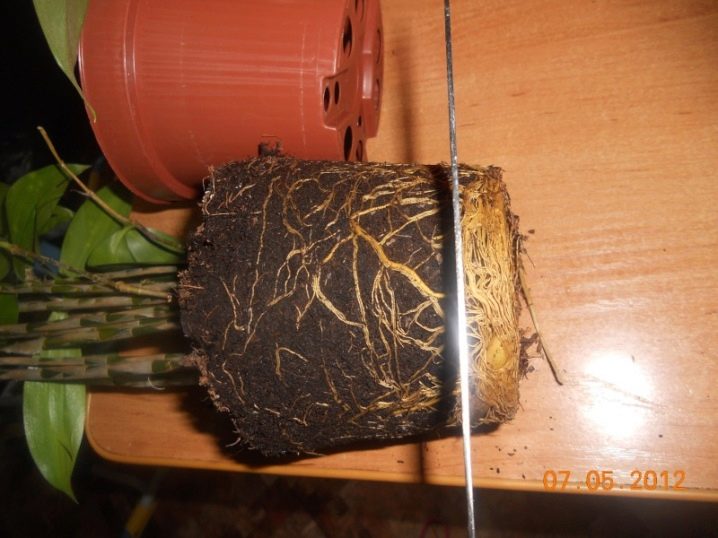
In the heat
If the heat in the room is the reason for the drying of the azalea, it will be difficult to save the plant. You can try to revive it if, along with the high temperature in the room, there was a reserve supply of moisture in the pot itself. In other words, if in the heat the plant could draw moisture from the soil. However, resuscitation in this case is possible if the azalea has just begun to fade.
To revive the plant, it is removed from the old pot and transplanted into a more spacious one, replenishing the insufficient supply of soil. Before planting, the soil is flavored with a shoot growth stimulator... If the room is flooded with the sun and has no shaded areas, during the resuscitation period, after each watering, the pot is covered with plastic wrap, creating a greenhouse effect with its help.
Withstand the film after watering for an hour and a half, then remove.
With sunburn
If the azalea dries up, discards buds and leaves due to sunburn, it is necessary to immediately remove the plant in partial shade and remove all yellowed and dry leaves from its stems. Next, proceed to a visual inspection and cutting off all dry shoots from the plant. The edges of the obtained sections are treated with crushed charcoal... After transplanting, the plant is watered abundantly.
With a lack of light
If the plant does not have enough sun, and the flower begins to die, it is necessary to gradually compensate for the solar deficit. It is impossible to sharply expose the azalea in the sun, since this can give the flower another stress that will destroy it. You need to keep the azalea for a week in the shade of a sunny room and then gradually turn it closer to the light.
However, a flower cannot be exposed directly under the sun: it needs diffused light.
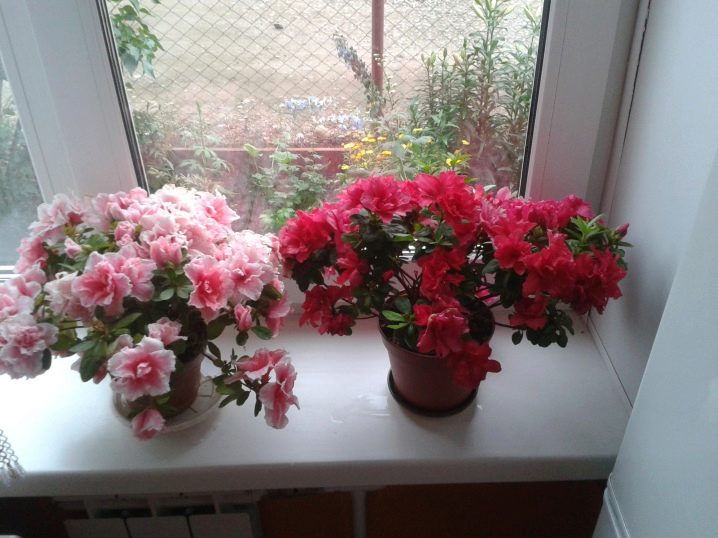
With the wrong temperature
The conditions for the development of a flower cannot be drastically changed. Pay attention to the conditions that were created for him in the store, where the azalea delighted the eye with an abundance of flowers and buds. It reacts to a change of even a few degrees, if it is abrupt. At the same time, it can be taught to be cool, but at the same time it is important that the sun enters the room. If during the purchase you did not ask the seller what is the optimal temperature for the comfortable growth and development of the plant, provide the azaleas with a climate with a temperature regime of +18 +20 degrees during resuscitation.
When attacked by pests
If a flower is affected by small insects, its leaves first fall off (and very quickly), and then the stems dry up.Here you will have to pay a lot of attention to each leaf, getting rid of all those on which insects sit. After that, what remains must be treated with drugs from pests that attack indoor plants. Chemicals can be purchased at a flower shop or where you got your soil and fertilizer. Optionally, you can replace the substrate. The need for soil cultivation is explained by the fact that when transplanting a flower, you can infect the soil with a Fusarium fungus, which prevents the roots from developing and destroys the root system. They get rid of it with the help of a manganese solution or "Fundazol".
We save from disease
As a rule, plant diseases are associated with improper care. In other cases, the azalea gets sick with cercosporia, black triassic, phyllostictosis and late blight. In most cases, the disease begins with leaves that turn black, blotchy, or curl, and then dry out. After that, the lesion passes to the stem.
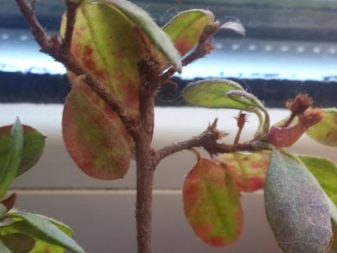
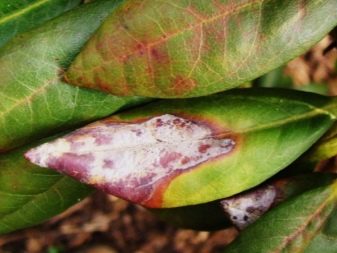
To save the plant, you need to treat it with a special preparation, get rid of the affected areas and transplant it into a new pot with fresh soil.
It is important to carefully examine the roots before transplanting, as well as prepare "Elin" to improve immunity. It is necessary to restore the health of the flower and create the most comfortable conditions for it. It is important to ensure that the roots can receive adequate nutrition and moisture.
What should you pay attention to?
During the resuscitation period, it is important to be especially careful about the state of the azalea. According to the general rules of care that she is provided at home, when signs of drying out of the foliage appear, you need to pay attention to the temperature in the room where the plant is located. It needs to be lowered, and the azalea itself, for prevention purposes, can be poured with settled acidified water, or at least sprayed on it. If the leaves are drying, you can give the plant a cool shower using a watering can with a fine sieve. Tap water is not suitable for irrigation because it contains too much salt and harmful impurities.






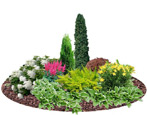
































































































The comment was sent successfully.